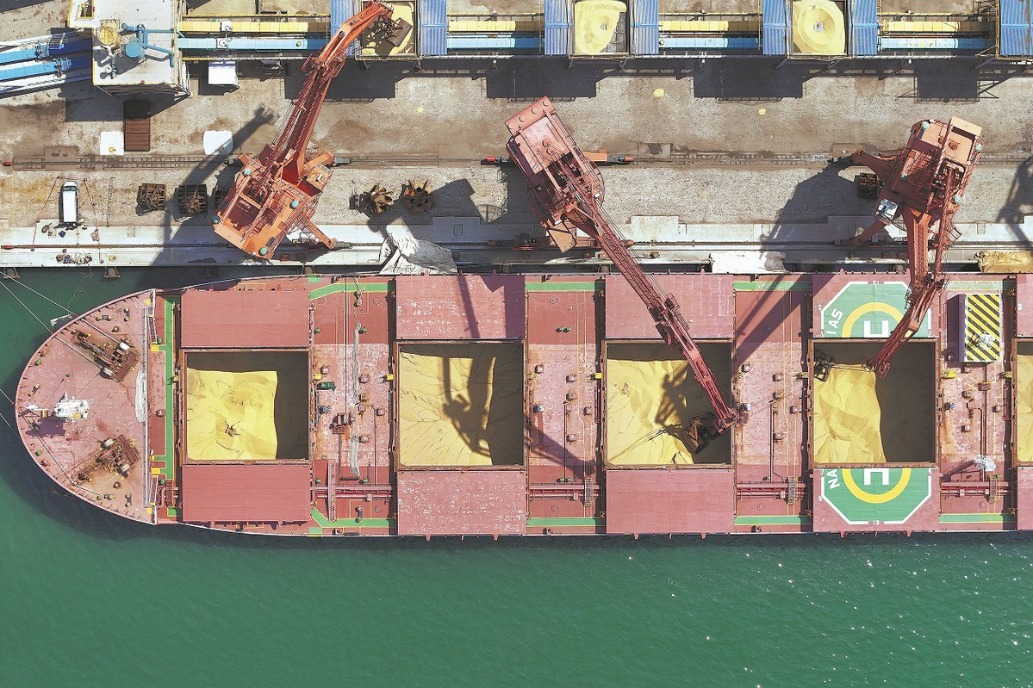Risk reducer
The SCO can navigate today's complex security challenges by consolidating consensus


In the face of transformative shifts in the international order and the escalating challenges to global peace, development, security and governance, the Global Governance Initiative, proposed by Chinese President Xi Jinping, has profound significance. It has further enriched the Shanghai Spirit, set elevated goals for the Shanghai Cooperation Organization in its maturity and infused its framework for practical cooperation with renewed purpose.
Since the SCO's founding in 2001, China has served as a primary catalyst for the deepening and expansion of the organization's security cooperation. This leadership is demonstrated through substantive contributions in several key domains.
First, as a leading architect and driver of the organization's institutional development, China has been instrumental in constructing the essential framework for multilateral security collaboration.
Second, China champions regional security cooperation and promotes the concept of cooperative security. Among SCO countries, the commitment to achieving security through collaboration is growing stronger, as it is the shared aspiration to jointly uphold peace and order. This convergence around the win-win principle of cooperation contributes to durable peace in the region.
In his speech at the expanded meeting of the SCO in Astana, Kazakhstan, President Xi has called for building a common home featuring solidarity and mutual trust, peace and tranquility, prosperity and development, good-neighborliness and friendship, as well as fairness and justice. The vision of a security community not only responds to current needs but also serves the fundamental interests of all SCO countries.
Third, China is committed to translating practical security cooperation into tangible outcomes by establishing a more effective cooperation system, with a focus on counterterrorism, law enforcement and defense.
As regional security continues to improve, China stresses the importance of prevention-oriented measures, tackling the root causes of extremism through education, public awareness, poverty reduction and youth engagement.
In the area of law enforcement, China facilitates joint efforts in narcotics control and combating transnational organized crime. The establishment of an SCO judicial training base has further strengthened inter-agency communication and capacity building. In light of emerging non-traditional threats, including climate change, water-related risks, cyber insecurity and public health challenges, China calls for closer dialogue and a more integrated law enforcement network.
On defense cooperation, China plays an active role in bilateral and multilateral border defense mechanisms.
The current international environment is characterized by numerous complex challenges, which impact the SCO in several ways. The rapid evolution of the global landscape, combined with prolonged regional conflicts and confrontations, has substantially heightened instability and uncertainty, directly threatening security and stability across the region. Meanwhile, some countries, adhering to hegemonic policies and power politics, are undermining the international order and attempting to curb the rise of emerging markets and developing nations. As SCO countries progress into a new phase of socioeconomic development, multifaceted and interconnected security challenges have grown increasingly salient.
With the SCO emphasizing common, comprehensive, cooperative and sustainable security cooperation more than ever before, the organization has new strategic tasks in the security sphere. Bolstering the organization's security collaboration will require not only strengthening its existing foundations but also pioneering innovative approaches.
Against the backdrop of profound international shifts and a resurgence of international terrorism, the SCO needs to jointly safeguard security in the border areas, and effectively address new challenges posed by terrorist and extremist organizations. China can continue to work with other SCO countries to strengthen integrated cooperation on de-radicalization governance.
It is also crucial to identify and develop new frontiers for security collaboration within the SCO. Recent years have seen frequent natural disasters across Central Asia, including extreme weather, earthquakes and forest fires. Under the SCO framework, China can work with other SCO countries to strengthen joint action concerning disaster relief and responses to extreme weather. Intensified partnership is also required to combat telecom and online fraud. SCO countries can work together to build legal and regulatory frameworks, leverage big data for monitoring and early warning systems, and promote anti-fraud applications to protect the well-being of the region's people.
Furthermore, addressing the complex security challenges in the SCO region requires integrated governance and multi-stakeholder coordination. It is essential to foster a governance approach guided by a holistic security outlook, facilitating collaboration among involved departments and industries of member states to establish a new paradigm for global governance. For instance, initiatives such as the Safe City project and youth exchange programs can serve as multi-stakeholder platforms for pioneering new forms of cooperation within the SCO framework.
The SCO countries not only face shared security challenges but are also bound by common development aspirations. This convergence of interests forms a practical basis for deepening and enriching security cooperation across the SCO region. The commitment to joint construction and shared benefits symbolizes a substantive step toward building a regional community with a shared future and, in a broader sense, an important practice in advancing a community with a shared future for humanity.
The author is a research fellow at the Institute of Russian, Eastern European and Central Asian Studies at the Chinese Academy of Social Sciences. The author contributed this article to China Watch, a think tank powered by China Daily.
The views do not necessarily reflect those of China Daily.
Contact the editor at editor@chinawatch.cn.


































